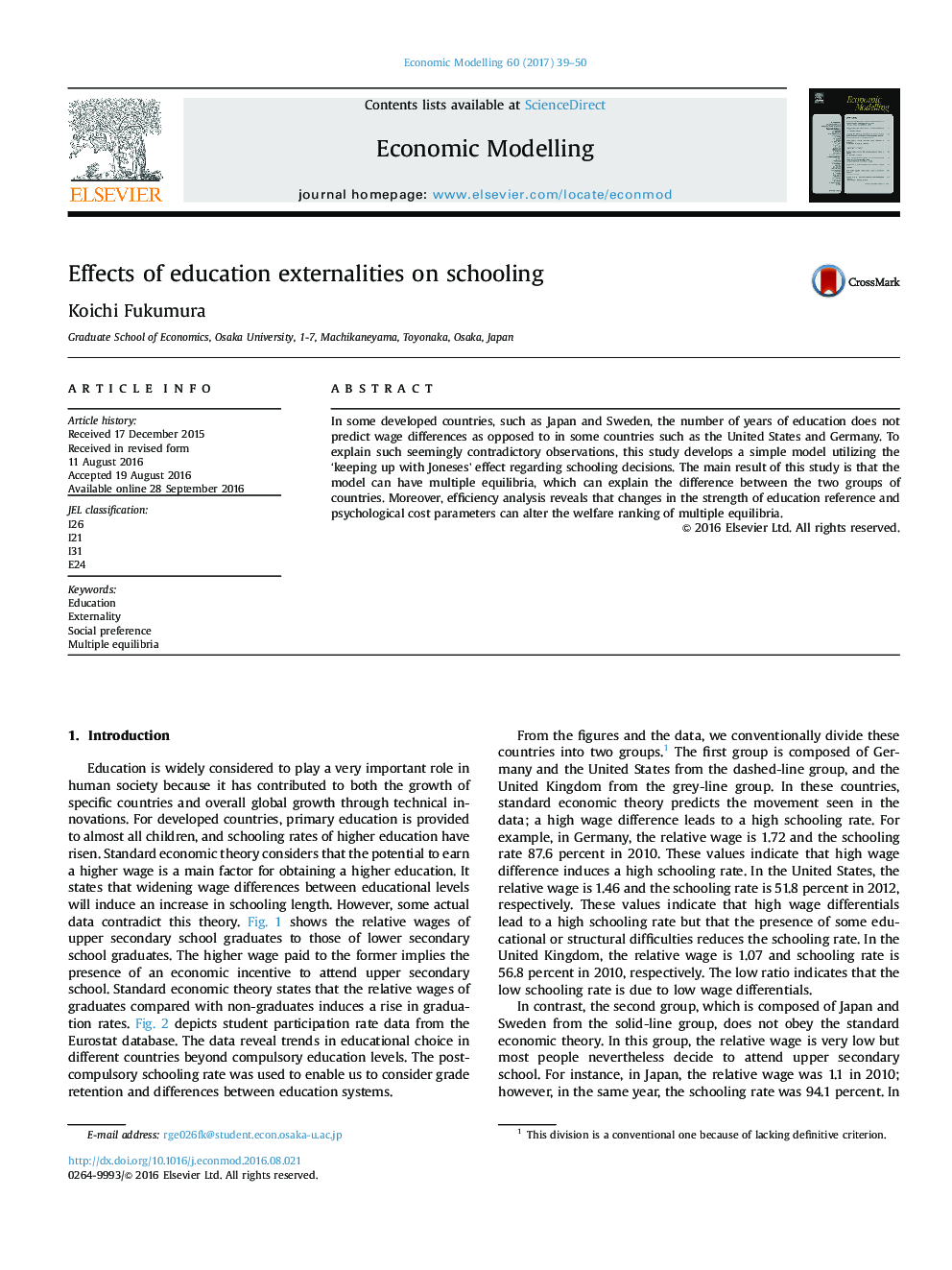| Article ID | Journal | Published Year | Pages | File Type |
|---|---|---|---|---|
| 5053187 | Economic Modelling | 2017 | 12 Pages |
â¢In some countries, number of years of education fails to accurately predict wage differences by education level.â¢This paper develops a model incorporating the “keeping up with Joneses” effect to explain such discrepancies.â¢The proposed model yields multiple equilibria that explain the relation of education and wage.â¢Differences in parameters change social welfare rankings of the two equilibria.
In some developed countries, such as Japan and Sweden, the number of years of education does not predict wage differences as opposed to in some countries such as the United States and Germany. To explain such seemingly contradictory observations, this study develops a simple model utilizing the 'keeping up with Joneses' effect regarding schooling decisions. The main result of this study is that the model can have multiple equilibria, which can explain the difference between the two groups of countries. Moreover, efficiency analysis reveals that changes in the strength of education reference and psychological cost parameters can alter the welfare ranking of multiple equilibria.
